What do Peacocks eat and drink? What to consider when feeding peafowl
Peacocks/ peafowl are omnivores, which means they will eat almost anything both meat and vegetation!
In the wild peacocks eat fruit, berries, grains, small mammals, reptiles, small snakes and insects. They like ants, millipedes, crickets, termites, centipedes, locust and scorpions. Peacocks will also eat seeds, grass, plants and flower petals and berries as part of their diet.
Feeding peafowl for optimum health
In captivity peafowl are usually fed a supplemented feed provided by their carers. Peacocks also eat cat food, cheese, nuts, scrambled eggs, cooked rice, grains and kitchen scraps. It is important to feed peafowl a high protein diet to maintain optimum health. Do not feed your peacocks basic poultry layers pellets or mixed corn. These feeds will not provide enough protein for the peafowl to live and reproduce healthily.
In the UK you should feed your peacocks a supplementary diet although they will survive foraging for food. If left to fend for themselves the peafowl’s health will not be in peak condition. If this is the case the peafowl may struggle to reproduce effectively. A sign of poor nutrition in peafowl is mature peahens not laying eggs during the peafowl breeding season. Other signs include poor fertility of the peafowl eggs or a poor hatch rate for fertile peafowl eggs.
The male peafowls tail is a strong outward signal of health and the better the peafowl’s health the more tail feathers they will have.
Feeding peafowl game food for optimum health
At Peacocks UK we get our peafowl food from a specialist bird feed provider, however there are many country stores around the UK which will stock Game food for feeding peafowl.
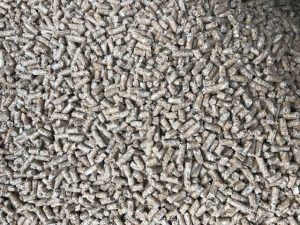
The game feed will change throughout the peafowl breeding season:
We use Game Feed during the winter months
In March we move to Game Breeder, which has a higher protein level to ensure the peafowl are in the best health.
During the summer we use Game Grower
If your feed supplier does not stock game food, feed your peafowl on turkey and duck food.
What Kinds of Foods Are Recommended to Feed Peacocks?
Peacocks will eat almost anything, though some foods are better for them than others. For instance, keep your trash covered, because peacocks will rummage through it in search of tasty scraps. In the wild, peacocks live on seeds, insects, berries and other nutritious items that can be readily found. In captivity, peacocks are generally fed a more controlled diet, but it consists of items similar to what is found in their natural habitat.
One the favorite foods of peafowl is insects. Peacocks are not picky and will readily consume ants, flying insects, grubs or almost any other bug. Their diet also includes spiders, which are not insects but are often grouped in the same category. Similarly, peacocks will scratch the soil in search of worms and other small creatures that may be easily uncovered.
Amphibians and Reptiles
Lizards and frogs are high in protein and will be gobbled up by most birds, including peacocks. Snails and slugs are a favorite meal as well, and they have led many people to believe that peacocks eat flowers. The truth is that they will tear apart flowers in search of snails and insects, and any flower parts that are ingested are eaten as a matter of course while trying to find the creatures that live along them.
Corn, wheat and other grains are a common food source for peacocks. They will also eat beans and peas, and they may tear tomatoes, bell peppers or fruits apart to get to the seeds inside. Cantaloupe and watermelon, for instance, have large seeds that contain nutrients necessary to a peacock’s diet. They will not usually eat the pulp of fruits and vegetables, even though it may appear they are doing so in their search for seeds.
Berries
Peacocks not only enjoy eating fresh berries, they also love the insects that congregate around small ripe fruits. Blackberries, raspberries and grapes are consumed whole, along with such wild variants as huckleberries, gall-berries and muscadines (wild grapes).
In captivity, peafowl are often fed a supplemental diet of pet food or livestock feed. In the case of livestock feed, they are merely eating concentrated grains, while pet foods such as dry cat food or dog food contain additional minerals and nutrients that may not be readily available through ordinary scavenging. These foods are not recommended as the only diet for peacocks, but they are generally used in conjunction with fresh or dried fruits, vegetables and grains.
What do Peacocks eat and drink? What to consider when feeding peafowl
Peacocks/ peafowl are omnivores, which means they will eat almost anything both meat and vegetation!
In the wild peacocks eat fruit, berries, grains, small mammals, reptiles, small snakes and insects. They like ants, millipedes, crickets, termites, centipedes, locust and scorpions. Peacocks will also eat seeds, grass, plants and flower petals and berries as part of their diet.
Feeding peafowl for optimum health
In captivity peafowl are usually fed a supplemented feed provided by their carers. Peacocks also eat cat food, cheese, nuts, scrambled eggs, cooked rice, grains and kitchen scraps. It is important to feed peafowl a high protein diet to maintain optimum health. Do not feed your peacocks basic poultry layers pellets or mixed corn. These feeds will not provide enough protein for the peafowl to live and reproduce healthily. Mixed corn can supplement a diet of high protein game food.
In the UK you should feed your peacocks a supplementary diet although they will survive foraging for food. If left to fend for themselves the peafowl’s health will not be in peak condition. If this is the case the peafowl may struggle to reproduce effectively. A sign of poor nutrition in peafowl is mature peahens not laying eggs during the peafowl breeding season. Other signs include poor fertility of the peafowl eggs or a poor hatch rate for fertile peafowl eggs.
The male peafowls tail is a strong outward signal of health and the better the peafowl’s health the more tail feathers they will have.
Feeding peafowl game food for optimum health
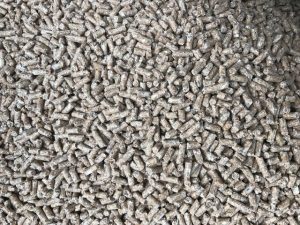
At Peacocks UK we get our peafowl food from a specialist bird feed provider, however there are many country stores around the UK which will stock Game food for feeding peafowl.
The game feed will change throughout the peafowl breeding season:
We use Game Feed during the winter months
In March we move to Game Breeder, which has a higher protein level to ensure the peafowl are in the best health.
During the summer we use Game Grower
If your feed supplier does not stock game food, feed your peafowl on turkey and duck food.
What Do Peacocks Eat? (Complete Guide)
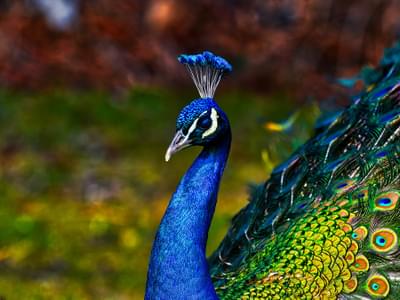
Peacocks are one of the most strikingly beautiful animals on the planet and are famous for their iridescently colourful feathers that make up some 60% of their total length. Peacocks are large birds with a 1.5m wingspan, and they surely need a large dose of nutrients to keep their plumage in check, so what do peacocks eat?
Peacocks are non-fussy omnivores and will eat most plant foods such as seeds, grains, berries, vegetables and fruits as well as insects, arthropods, small lizards, snakes, frogs and rodents. They require a high-protein diet to keep their feathers healthy and generally have strong appetites.
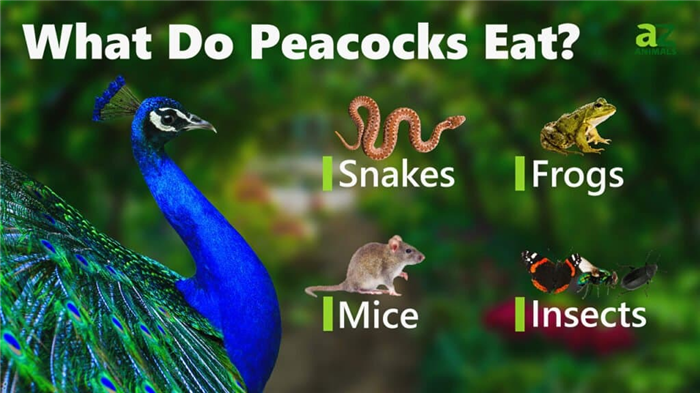
A pair of peacocks foraging for food on the ground
There are three species of peacocks; the Indian peafowl, Green peafowl and Congo peafowl. The word peacock refers to a male peafowl from any of those species, whereas peahens are female peafowl. Peacocks are best known for their famously impressive plumage. Not only are the feathers themselves extremely long, but the colours are exceptionally bright and iridescent. Peafowl are ground roaming birds, and though they’re perfectly able to fly, they can’t fly long distances.
Instead, peafowl much much prefer walking, which is why they’re pretty easy to train to not fly off when kept as pets. They forage most of their food from the ground, too, and as large birds, peacocks require substantial and diverse diets.
Read on to find out more about what peacocks eat and other interesting facts about peacock diets!
What do wild peacocks eat?
Peacocks – male peafowl – are omnivores and are not known to be fussy eaters. With their short, sharp and powerful beaks, peacocks can hunt a variety of small animals including lizards, snakes and rodents. They’ll also hunt and eat arthropods such as centipedes, millipedes and scorpions as well as all manner of insects. Berries, seeds, grains, plants and flower petals are all readily consumed by peafowl.
Maintaining all of that plumage requires some serious energy and nutrition, hence why peacocks require a high-protein diet that includes meat, primarily from insects. Whilst small insects are consumed readily by any wild peafowl, they aren’t afraid of hunting and killing small snakes, rodents, arthropods and frogs.
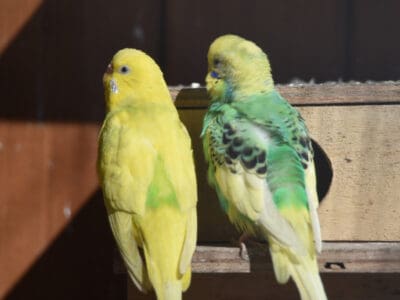
A male Green Peafowl foraging in the wild
What is a peacock’s favourite food?
The most important features of a peacock’s diet are nutrient diversity and quality. These are not simple birds, and they’re relatively large too, which means that their dietary requirements are pretty demanding. Legumes and vegetables are a firm favourite of peacocks who will happily munch upon ample beans, peas and leafy greens.
Berries and fruit provide a sweet dose of vitamins, whereas meat such as dried mealworms and larvae is also essential for added protein. Whilst it’s generally not necessary to feed a captively bred peacock rodents, amphibians and lizards, they will eat meat kitchen scraps.
What do peacocks eat in the winter?
Peacocks have a stable diet all year round as they don’t migrate or stray too far from their territories, so long as they feel safe. Plenty of nutritious protein-rich foods keep peacocks at their healthiest. Peafowl are hardier than people tend to think they are, but they still need to be kept warm and well-fed in colder winter climates.
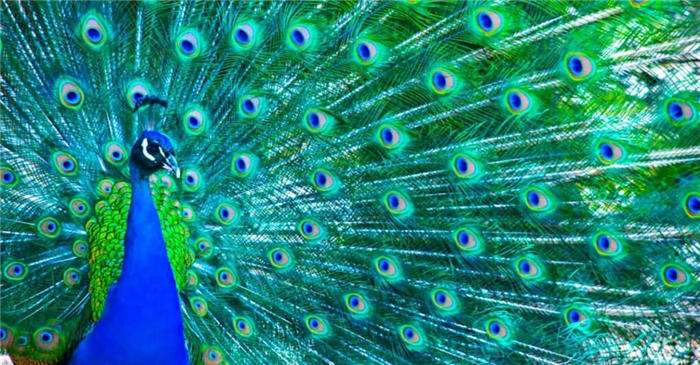
A peacock during the winter
Do peacocks eat snakes?
Since they spend a lot of time foraging on the ground, peacocks are wary of any predators that share their territories, including snakes. With their short, powerful beaks and large, sharp talons, they’re very capable of killing snakes.
In fact, in India and Sri Lanka, peacocks are used for King Cobra pest control! Peacocks aren’t pushovers in the wild – they have to survive some quite perilous conditions in their Southeast Asian, Central American and Central African jungle habitats.
Despite looking very well-to-do and prim-and-proper, peacocks are quite aggressive and are ready and willing to fight, especially when something or someone threatens their young. They can deliver a nasty peck with their strong necks and have powerful talons for defence, digging, foraging, and gripping snakes and other animals whilst they eat them.
Do peacocks eat rats?
They certainly can, if they can catch them, that is. Peacocks are non-fussy omnivores and will eat pretty much whatever they can get their beaks into, including rodents. Rats are agile and tend to be alert to danger, but if they did find themselves face to face with a peacock, then you’d fancy this large bird to have the upper hand!
Peacocks will eat from your hand
Can peacocks eat bread?
Bread is not strictly bad for birds, but it’s also not particularly good for them either. If birds are overfed on bread, then they’ll not be encouraged to consume the more nutrient-rich foods that they need to be healthy – not too dissimilar to humans then! Peacocks certainly need a protein-dense, nutrient-rich diet. Since they aren’t fussy eaters, they’ll probably appreciate a wide choice of food that changes throughout the week.
Baby peacocks – or peachicks – are weaned by their mothers until they’re able to forage themselves. They’ll probably choose softer food whilst they’re still growing and avoid confronting and eating snakes, lizards and larger insects until they’re a bit bigger.
In captivity, peachicks are often fed game bird mixes, as peafowl are from the same family as many game birds such as pheasants. Peachicks are omnivores from the outset and will likely consume a lot of soft insects such as larvae and ants. Peachicks grow fairly quickly and are quite large when they hatch, about the size of a fully-grown quail, but they’ll take over 2 years to reach maturity. Peacock feathers can take some 4 years to fully grow.
Baby peacocks (peachicks) foraging for food
Do peacocks eat meat?
Peacocks are omnivores and certainly eat meat. Meat provides the peacock with the protein-rich diet it requires to maintain its magnificent plumage. The meat staple of a peacock’s diet is insects but they’ll quite happily eat small lizards, rodents and frogs.
Peacocks, like other birds, only ever need to drink water. Birds that consume vast quantities of insects or other water-rich foods don’t need to drink much, if at all. Peacocks are quite large birds, though, so they will need their own clean water supply as they won’t stay adequately hydrated from their food alone.
What do baby peacocks eat?
Unlike many other types of birds, baby peacocks are highly mobile from the moment they’re born and feed for themselves. It takes only one week before they can fly. Many of the baby peacocks will follow the mother for the first few weeks of their lives and eat mostly adult foods. They are almost completely independent once they learn how to forage properly for food.
The peacock has a long and varied diet. It is difficult to list specific species. Instead, they can consume almost any type of food listed in the following groups:
- Grains
- Berries
- Leaves
- Grasses
- Flower parts
- Insects
- Worms
- Snakes
- Lizards
- Small mammals
Share this post on:
AZ Animals Staff
AZ Animals is a growing team of animals experts, researchers, farmers, conservationists, writers, editors, and — of course — pet owners who have come together to help you better understand the animal kingdom and how we interact.
